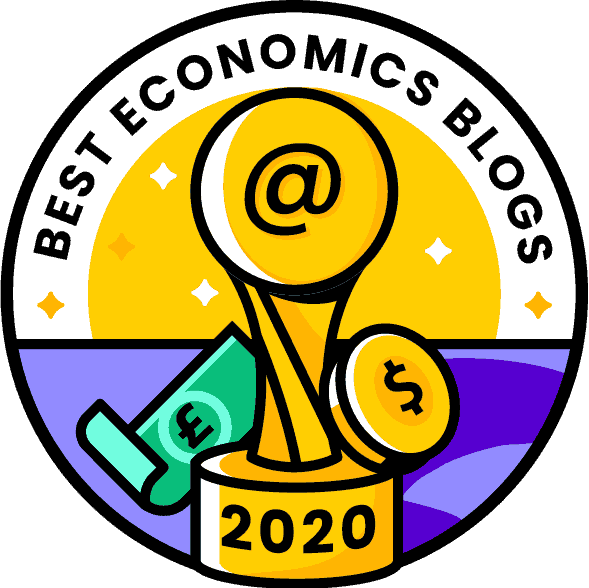Archive for June, 2012
June 12, 2012
Today seems to be Chicago day…
After posting on Chicago Law School, here is an article depicting the decline of city of Chicago.
The article covers several issues plaguing city of Chicago – population migration to other cities, fiscal mess, poor leadership, corruption etc..
In the end it says:
Fixing Chicago will be a big, difficult project, but it’s necessary. The city’s sparkling core may continue to shine, and magazines may continue to applaud the global city on Lake Michigan—but without a major change in direction, Chicago can expect to see still more people and jobs fleeing for more hospitable locales.
Posted in Economics - macro, micro etc | Leave a Comment »
June 11, 2012
There is lately a lot of focus on BRIC club. And within BRIC on India.
- Jim O Neil, its creator feels time not yet over for BRIC but thinks India the most disappointing..
- Ruchir Sharma feels BRIC was just a clever marketing construct. Has recently added, pre 2003 of 5-6% growth will be the new normal for India
- Finally the latest is S&P warns India could be the first BRIC to lose its investment rating.
India had all the factors to become the most impressive member of of the BRIC Club – demographics, diverse economy, very large market, top Indian companies etc.
However, since 2011-12 India has turned out to be the most disappointing story.
Raghu Rajan in this article tries to connect the dots:
(more…)
Posted in Academic research & research papers, Economics - macro, micro etc, Economist, Indian Economy/Financial Markets | 1 Comment »
June 11, 2012
IMF’s latest research bulletin deals with 7 Qs on inequality.
Qs are answered by Laura Feiveson.
She points to graphs showing whether income inequality has risen from mid-1980s to mid-2000s. You see both European and Anglo Saxon economies there. So you see inequality has risen in Finland, Israel, Italy, USA, Norway, UK etc. It has declined in Greece (surprise), Spain (another surprise), Ireland etc. Interesting examples there..
There is also an interesting graphs showing gini coefficient pre and post taxes and transfers. This is important as taxes and transfers help reallocate the wealth created. So if you see countries like Norway and Sweden which show rise in inequality in 2000s have a much lower inequality post taxes/transfers. Where as in US, Israel and Portugal inequality remains high both pre and post tax/transfer calculations…
Why the rise in inequality?
(more…)
Posted in Academic research & research papers, Economics - macro, micro etc, Economist, Financial Markets/ Finance, Speech / Interviews | Leave a Comment »
June 8, 2012
Whether US unemployment is because of structural (mismatch between skills and availability of jobs) or because of cyclical issues (low demand) is a hot debate. The policy implications are according to the stance one takes. Those in former camp believe mon pol cannot do much in case of high mismatch. Latter camp believes it does.
Chicago Fed chief has stressed in couple of speeches that high unemployment a cyclical problem. And this can be resolved by easy mon policy. He came with innovative thinking like Price Level targeting/unemployment targeting to keep policy rates at current levels till price level/unemployment levels rise..
Here is a short paper on the mismatch from Chicago Fed econs. They nicely show much of the rise in unemployment is not because of mismatch. They point that during the crisis, mismatch had increased but lately has declined:
(more…)
Posted in Academic research & research papers, Central Banks / Monetary Policy, Economics - macro, micro etc, Economist | Leave a Comment »
June 8, 2012
I was just amazed to read this interview of Ariel Rubinstein. Someone who is so famous for his game theory work actually feels it does not really have much practical usage. He actually encourages people to write a book which shows limitations of game theory! He also talks about why so many Israelis take up game theory (because of Aumann effect) etc.
I was so surprised to read the interview that had to re-read it many times to be sure whether I have not read it wrong ..
He starts by saying much of game theory is based on the typical econ assumption of rationality. So you feel as if he will tell you the new ideas emerging etc in GT. However what you get instead is this:
(more…)
Posted in Academic research & research papers, Economics - macro, micro etc, Economist, Speech / Interviews | 1 Comment »
June 7, 2012
A super interview of the great Psychologist.
SPIEGEL: Professor Kahneman, you’ve spent your entire professional life studying the snares in which human thought can become entrapped. For example, in your book, you describe how easy it is to increase a person’s willingness to contribute money to the coffee fund.
Kahneman: You just have to make sure that the right picture is hanging above the cash box. If a pair of eyes is looking back at them from the wall, people will contribute twice as much as they do when the picture shows flowers. People who feel observed behave more morally.
SPIEGEL: And this also works if we don’t even pay attention to the photo on the wall?
Kahneman: All the more if you don’t notice it. The phenomenon is called “priming”: We aren’t aware that we have perceived a certain stimulus, but it can be proved that we still respond to it.
SPIEGEL: People in advertising will like that.
Kahneman: Of course, that’s where priming is in widespread use. An attractive woman in an ad automatically directs your attention to the name of the product. When you encounter it in the shop later on, it will already seem familiar to you.
Read on…As always exciting..
Posted in Behavior Eco/Fin, Economics - macro, micro etc, Economist, Speech / Interviews | Leave a Comment »
June 5, 2012
A superb post by NY Fed’s Liberty Blog.
The Museum of American Finance covers competing theories in a short video and essay on its blog entitled “Taking Stock of History: The Bull and Bear Statue.” The video presents former New York Stock Exchange trader Arthur Cashin, who suggests that the symbolism originated on the floor of the London Stock Exchange at the time of the Crimean War, which pitted Britain, personified in political cartoons as “John Bull,” against Russia, often represented as a bear. A museum intern offers an alternative explanation based on the fighting styles of the two animals and their parallels to market behavior. The essay introducing the video features a third possibility—that the symbolism is an allusion to fur trading. The text explains:
The term “bear” dates back to 1709, when it was used as shorthand for the bearskin jobber occupation. The title “bearskin jobber” originates from a proverb highlighting the practice of selling bearskins before catching the bear. In a more modern sense, a bear is someone who expects prices to fall, thus selling stocks in hopes of a future compensation.
That takes care of the bear, but what about the bull? According to the “Your Questions Answered” section of Kiplinger’s Personal Finance in December 1962 (at page 18), the bull symbol developed after the symbol of the bear and in relation to it: “It probably was adopted as an opposite for ‘bear’ from the old English sports of bear baiting and bull baiting.”
The bull and bear as visual symbols may have entered the public consciousness with Thomas Nast’s cartoon in Harper’s Weekly after the crash of 1869 in which dead bulls and a bear (and for some reason a fox and other cute animals) are shown in a heap in front of a roped-off Wall Street with a sign reading “This ‘Street’ is closed for repairs” and a caption stating “What a fall was there, my countrymen!”
Fascinating..
Posted in Academic research & research papers, Blogs to Read | Leave a Comment »
June 5, 2012
The recently released GDP data showed there was a trade surplus in Q4 2011-12.
[In the Expenditure side classification, Exports were Rs 433,514 Cr and Imports were 424,743 Cr (constant prices). In current prices terms exports are 679,926 Cr, Imports were 631,398 Cr. As exports more than imports, you have trade surplus.]
This was simply laughable as it is widely known India has a trade deficit and a current account deficit. This was covered in the media as well. Though not as much as one would like. Perhaps data issues are a given now.
So where did these numbers come from? No one really knows..
Govt. officials defend this saying it is adjustment:
(more…)
Posted in Indian Economy/Financial Markets | Leave a Comment »






